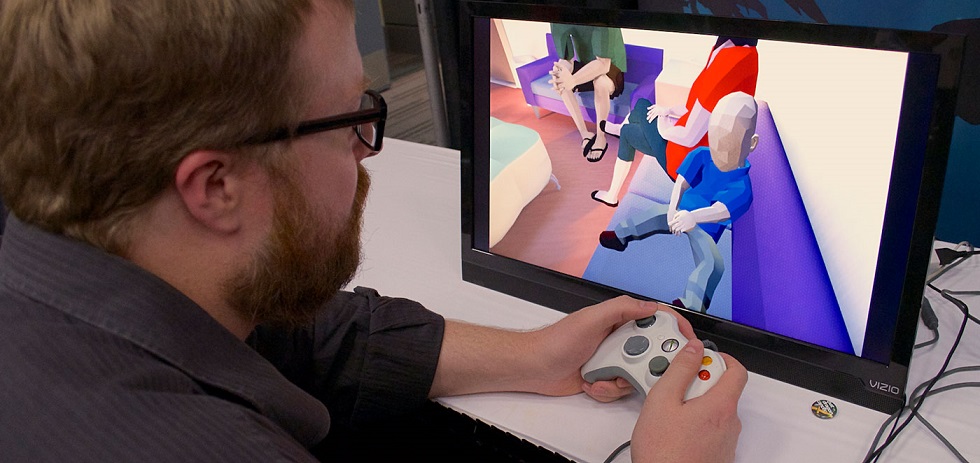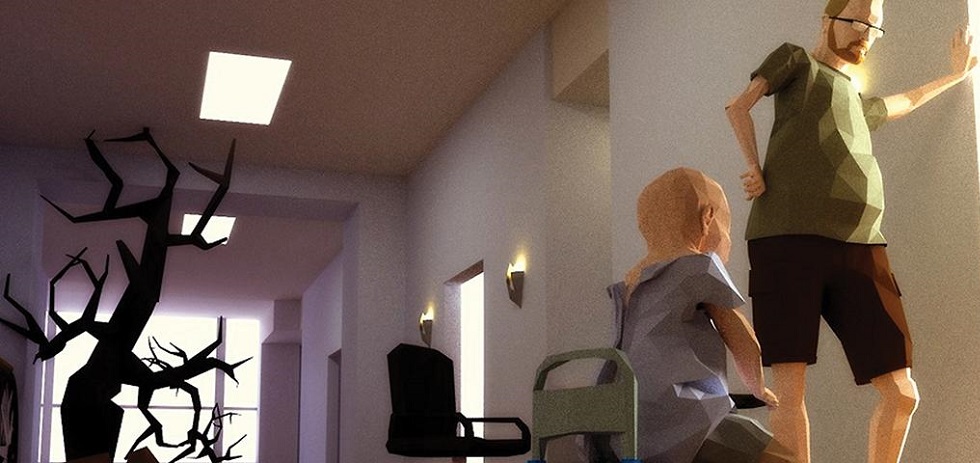The broken ground of 20th century art is littered with testimonies from its breakers. Broadcast interviews with directors, feature articles in the press and other materials spring up to try and disperse the hype surrounding revolutions as they unfold. This is true in more recent times with video games, a medium that, like film, has been equally boosted and beset by the democratising online boom, that also birthed pioneers who act independently from the major publishers. The auteur-scoping starts with features like Indie Game: The Movie and PlayLoading: Rise of the Indies, which sketch out the Odyssean journeys from grid paper to Xbox Live that are undertaken by the likes of Phil Fish and Zoe Quinn, and then leads into works like Minecraft: The Story of Mojang and the Double Fine Adventure series, which expands the purview to the studios holding a visionary’s ambitions aloft (those of Markus Persson and Tim Schafer in those respective examples). Although these people work in a realm of code and mechanics, the constancies between games and pre-dating forms like film/music/art/what-have-you are real and fascinating, particularly in the way these projects’ directors must clutch them to their chest through a storm of familiar obstructions – production practicalities, interpersonal conflict, public dissent – which the age of social media has only exacerbated.
The challenge unique to games, though, is in grappling with its lingering bloodlust, not just that of bombastic mega-sellers like Call of Duty or Assassin’s Creed, but of the vile backlash against people who have dared to substitute the desire for fun with curiosity in soulful matters. To a vocal and petulant set of “gamers” (a tag that itself is becoming more exclusionary and regressive), the empowerment fantasies sold to them since childhood are being stolen by people with some kind of agenda. Right here is where Thank You For Playing makes a bold entrance, not looking to herald a new figurehead for the medium but to affirm its ability to rationalise extreme emotions through abstract interfaces. In telling the story behind Ryan Green’s That Dragon, Cancer, directors David Osit and Malika Zouhali-Worrall mark that loathed agenda as nothing less than a vital emotional catharsis, rendered so personally in game form as to connect publicly; they do so with tenderness that mirror’s Green’s aims and becomes richly atypical within the developer-documentary subgenre they have elevated.
The film is swift and subtle in establishing Green’s subject: Joel, his infant child marked by God for imminent death via brain tumour. Ryan is making the game as a window into the family’s reaction to his diagnosis and ongoing treatments, placing faceless but recognisable versions of themselves in dreamy, dioramic settings to be wandered through. Ryan also writes poetic fragments of observation and emotion, which he reads himself in a dramatic whisper and has appear in hand-written text in front of the avatars he has fashioned. The final structure of these elements is yet to solidify here and even now, with the game still due to be released months after Osit and Zouhali-Worrall have wrapped, but as scenes of him vetting scripts by his wife and breaking down in the voice-over recording booth show, the determination, toil and value of the work done by the entire family is never unclear.
Our impression of Ryan, however stubborn he becomes on certain details like whether to use real cry in the game or one from a generic baby,1 is receptive enough to the naysayers who would gag on the sentiment or accuse him of exploitation, and much more so to his wife and children, who are similarly creative (he met the former in high school drama) and wracked with despair. Osit and Zouhali-Worrall fit so deeply into their lives that we even catch him thinking aloud what is being sated by pointing cameras at his son’s death march – is it indeed pulling away the veil of silence that America places on death, as he implies early on, or are Internet commenters right when they say his ego has run amok? Such questions remain locked in the family’s personal experience rather than industry-wide consultation, which keeps its intimacy on lock.
Following the Greens through outings, hospital visits, prayer sessions and other startlingly intimate occasions would be affecting by itself, but Osit and Zouhali-Worrall make an exceptional achievement in their assembly that is proportional to Ryan’s. As demonstrated even in the film’s first few minutes, footage of the game itself is not a mere accompaniment to discussions between the family and project staff, or a finished model to show where certain sound recordings and graphics show up, but a visual track edited so carefully that it clarifies to us how a player will interact with the hypnotic environments and characters, and what that significance that will carry. By capturing the nuance of player movement and the subverted tropes of mainstream games, including a Balloon Boy-esque flight through stars and a peculiar Mario Kart take-off set in a hospital hallway, every conceivable thing is done to replicate the feeling of navigating the game short of placing a controller in our hands. This creates an unprecedented and fascinating fusion between the forms, though its potential for cutting through the commercial noise of the wider industry is limited to ironic establishing shots of a noisy trade show floor, which feels like a bit of missed potential.
That same trade show, however, is where the film’s crucial thematic moment comes, with literal controllers placed in the hands of Penny Arcade Expo attendees. It’s an utterly harrowing sequence, not for the kind of suspense that scenes with an identical setting from Indie Game: The Movie played upon, but for the utter distress lining players’ faces as they engage with what the Greens have slaved over. As with the rest of the development, their effort rewarded with understated emotional nourishment, via a grateful end-screen message that gives Thank You For Playing its title and signs off on their heart-breaking grabs at a normal life for Joel. Our witnessing of their boy’s angelic life, for all the tumult it causes, becomes a privilege rather than a perversion, and a richly compelling endeavour for both film and video game communities to take note of.


